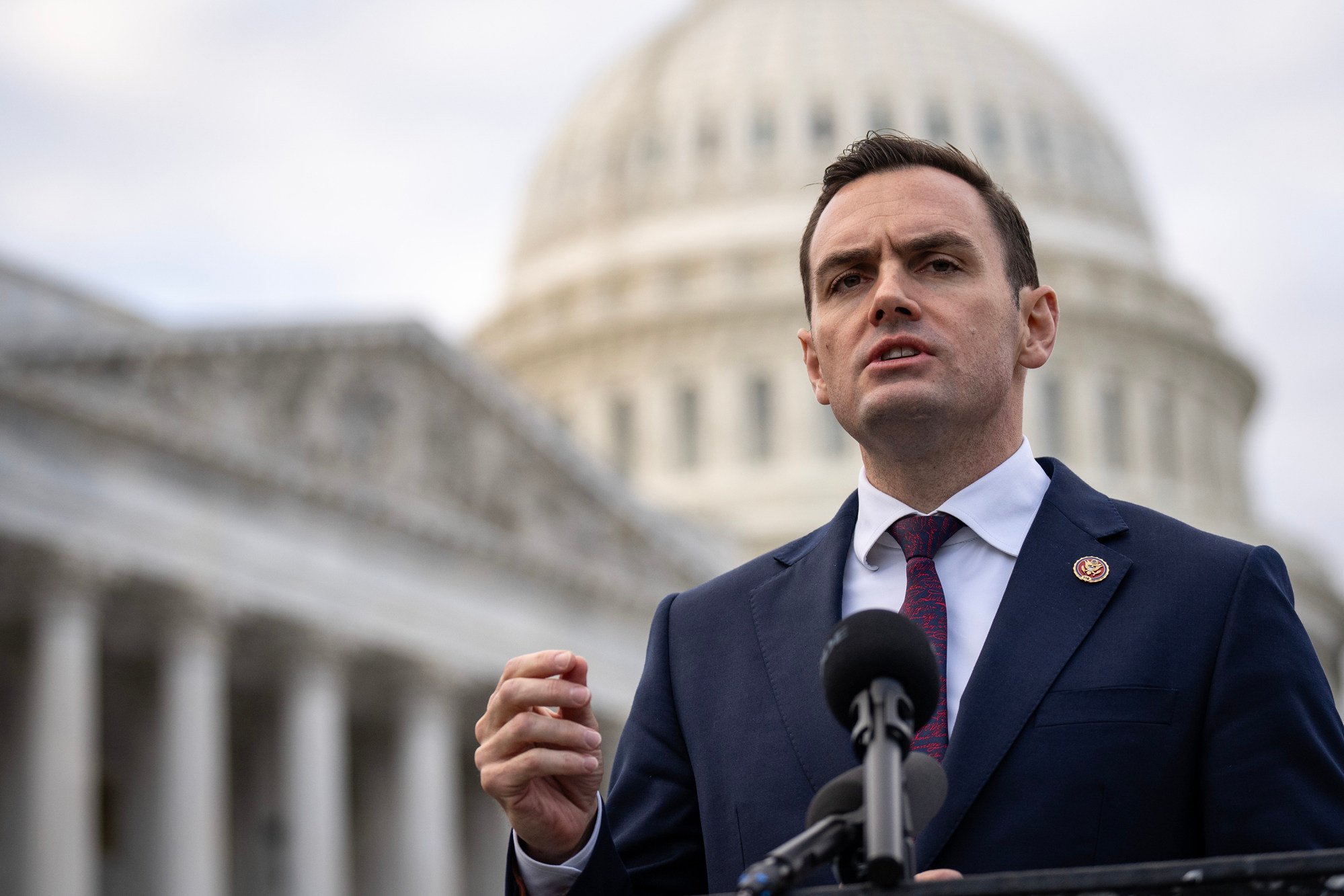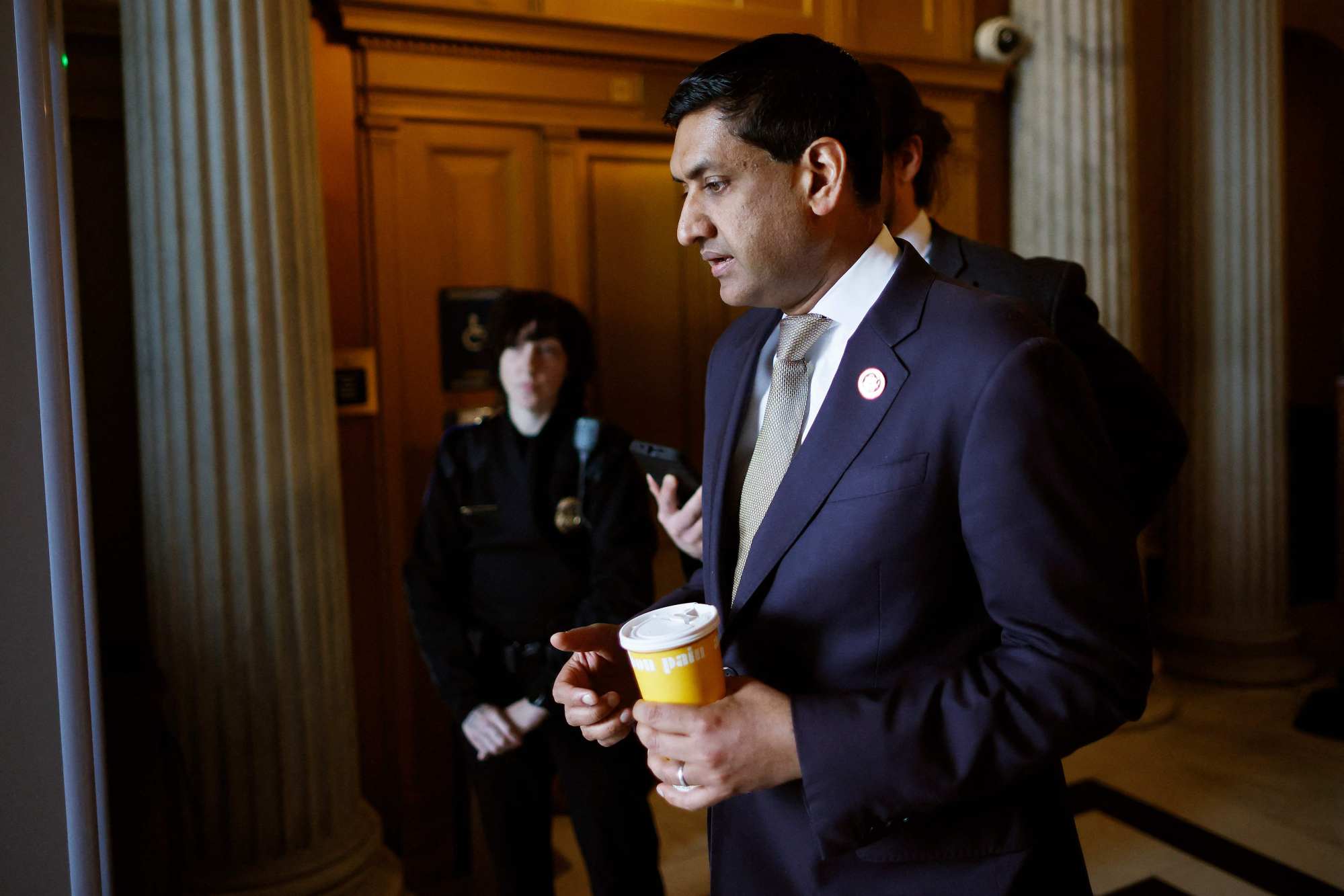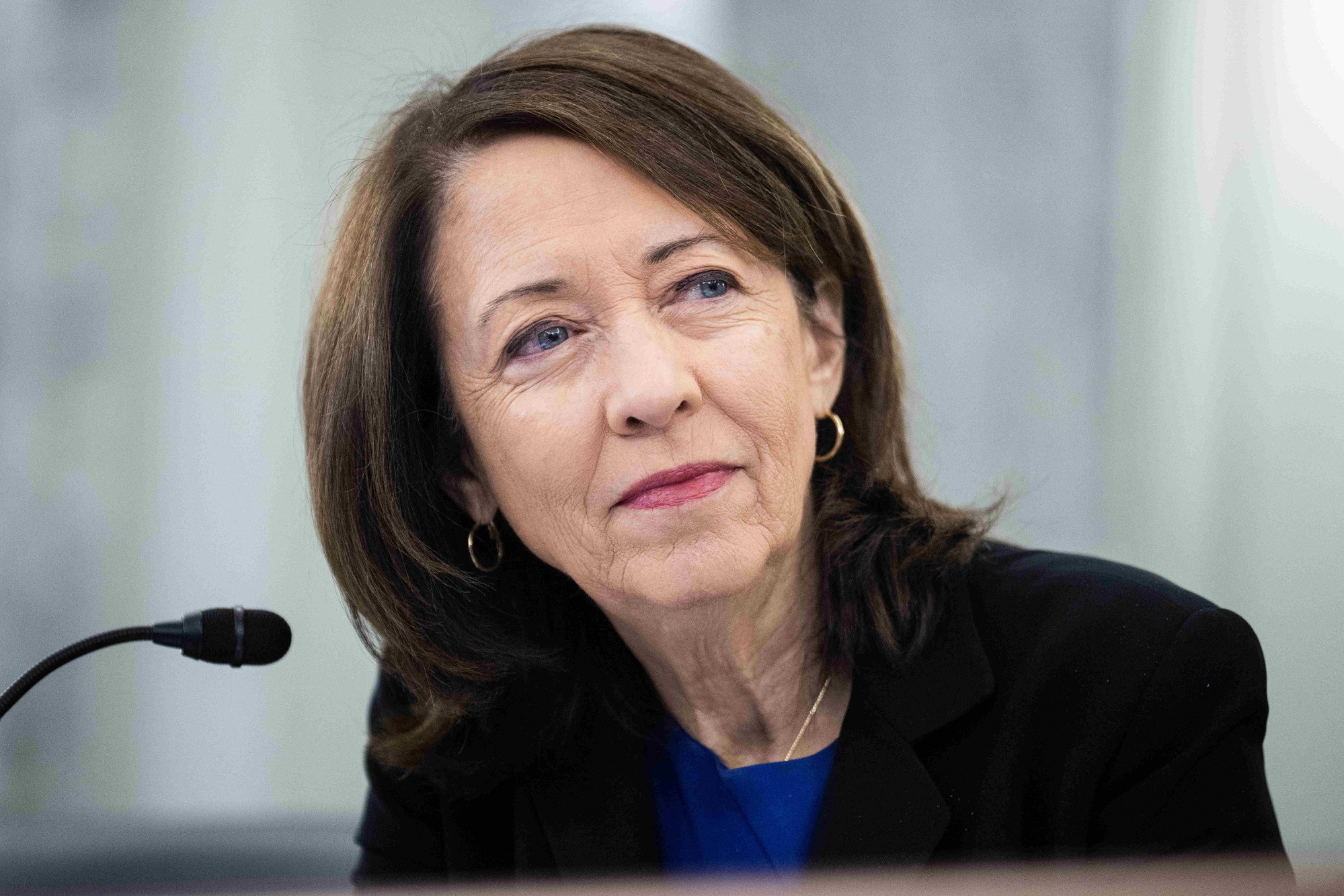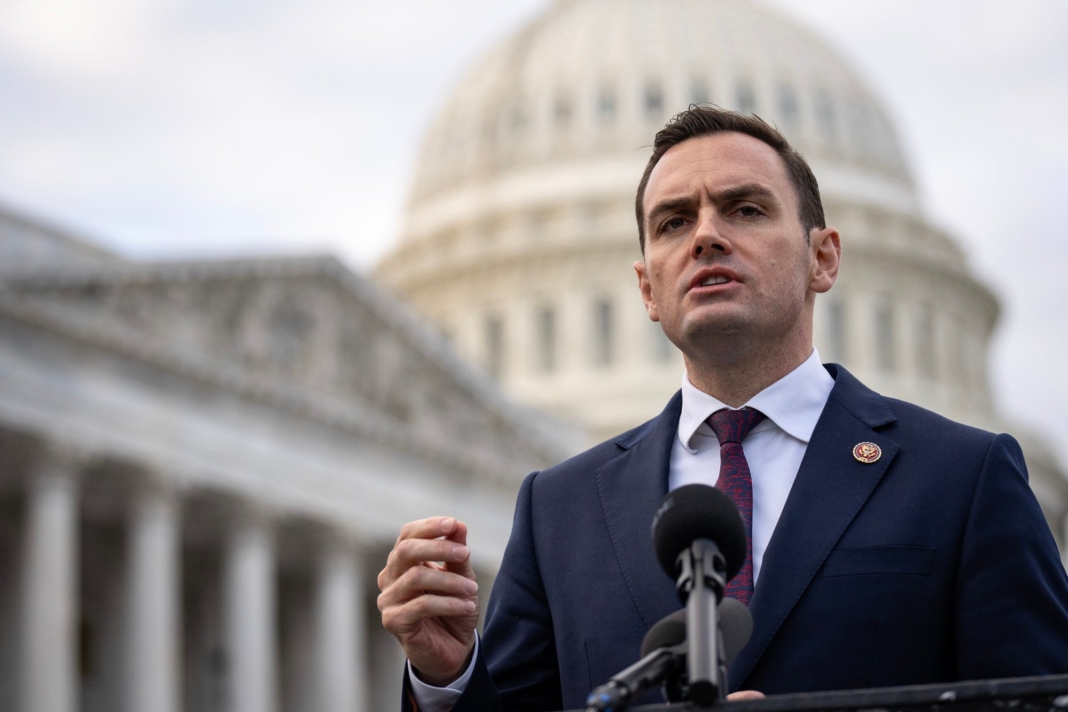Opposition to the TikTok bill has been almost as bipartisan as support for it. Fifteen Republicans and 50 Democrats voted against the bill on Wednesday; there was one abstention.

Reacting to Wednesday’s vote, White House spokesperson Karine Jean-Pierre said: “We hope the Senate takes action and takes this up very quickly.”
The fast-tracked bill also establishes a process for the president to designate other apps controlled by “foreign adversary” countries to face restrictions on operations in the US.
Lawmakers have expressed concern about TikTok’s potential to surveil and manipulate Americans through collection of their personal data and algorithm modifications.
Why is Trump now defending TikTok in the US after trying to ban it?
Why is Trump now defending TikTok in the US after trying to ban it?
Companies controlled by a foreign adversary would “always choose the path for more control, more surveillance and more manipulation”, said Washington Republican Cathy McMorris Rodgers, chair of the House energy and commerce committee, on Wednesday.
“And in the case of TikTok, we wouldn’t even know it.”
In response, House critics of the bill – ranging from progressives like New York Democrat Alexandria Ocasio-Cortez to MAGA (Make America Great Again) supporters like Georgia Republican Marjorie Taylor Greene – highlighted the dangers of emulating China’s censorship system and singling out TikTok among social media apps to target.
Some noted that they remained unconvinced of TikTok’s threat to US national security even after a closed-door briefing on the matter earlier this week.
Ahead of Wednesday’s vote, California Democrat Ro Khanna gathered with TikTok users from across the country in front of the US Capitol building to oppose Gallagher’s bill.

He released a TikTok video on Monday arguing for an “internet bill of rights” instead of what he described as hurting creators and organisers seeking to “challenge the political establishment”.
Khanna was the only member of the House select committee on China to vote against the bill on Wednesday, with New Jersey Democrat Andy Kim not voting.
For its part, TikTok has argued that efforts to restrict it would hamper the free speech of 170 million Americans who use the short-video platform.
According to The Washington Post, the company rekindled negotiations in September with the Committee on Foreign Investment in the US – a Treasury-led inter-agency group that reviews foreign transactions – to institute a plan restricting foreign access to American user data.
TikTok gets thumbs up in China for ‘tough stance’ against US lawmakers
TikTok gets thumbs up in China for ‘tough stance’ against US lawmakers
Called Project Texas, the US$1.5 billion plan would cede authority over TikTok’s American operations to a three-person board selected by CFIUS.
That board would run a subsidiary called US Data Security, which would handle all of the app’s critical functions in the United States, including user data, engineering, security and content moderation.
But lawmakers have remained unconvinced, telling TikTok’s chief executive Chew Shou Zi that only a ban or divestiture would be acceptable. Chew landed in Washington on Tuesday to make an appeal to senators to oppose the bill, per The Washington Post.
Chinese national security laws likely require data from the apps to be handed over on request from government agencies, though TikTok maintains it has neither given American user data to Beijing, nor has Beijing ever asked for it.
Responding to free-speech concerns from critics, Gallagher has repeatedly contended that his bill was not a ban of TikTok, but meant to force a change in the app’s ownership.
Additionally, “if ByteDance was forced to divest TikTok US, the acquisition by a US company would also require antitrust approval from the Chinese government”, said Paul Triolo of Albright Stonebridge Group, noting that this process typically took “much longer” than the divestiture period the bill seeks.
Triolo, who specialises in China and tech policy, added that China’s national security laws are too vague to conclude that China-based companies must turn over data on request from Beijing.
“None of the laws in question have implementing regulation that would provide any detail on what the laws actually mean in practice.”
ByteDance values its shares higher in latest buy-back offer for staff
ByteDance values its shares higher in latest buy-back offer for staff
Free speech advocates, including the American Civil Liberties Union, wrote in a letter to the House energy and commerce committee last week that “it does not improve matters to say that this isn’t a ban”.
Bipartisan criticism has stymied that broadly targeted bill, which did not mention TikTok by name but would have likely affected the app’s ability to operate in the US.
Some senators remained undecided on the most recent effort to restrict TikTok.
TikTok told to break with China’s Communist Party or lose access to US users
TikTok told to break with China’s Communist Party or lose access to US users
South Carolina Republican Lindsey Graham on Sunday said he was “conflicted” about Gallagher’s bill. Others like Oregon Democrat Ron Wyden and Oklahoma Republican James Lankford said they still needed to read the bill before deciding. Wyden expressed concern that the bill was moving too fast for a proper assessment of its implications.
Warner and Florida Republican Marco Rubio, leaders of the Senate Select Committee on Intelligence, came out in support of the bill on Wednesday and said they would work in a bipartisan manner to push it through the Senate.
But Maria Cantwell, the Washington Democrat who chairs the Senate commerce committee, said she preferred other legislation to regulate apps.

Trump reportedly met last month with Jeff Yass, a major TikTok investor and Republican donor, though the former president on Monday denied they had discussed the app.
Its analysis was “inconclusive” about whether TikTok employs political censorship of user posts.
US executive order to keep Americans’ personal data from ‘countries of concern’
US executive order to keep Americans’ personal data from ‘countries of concern’
TikTok users, for their part, have flooded Congressional offices with calls urging to not ban the app.
In videos attesting to TikTok’s positive impact on their lives, some said Congress was showing bias against the popular app in choosing not to target other social media apps, noting China could access their data through those apps even if TikTok were banned.
Others expressed scepticism that the app was manipulating content in favour of China.
“If China controls TikTok, they’re doing an awfully good job of censoring content that is critical of the US government,” said one TikTok creator with 1.4 million followers.
New York Democrat Jamaal Bowman last week posted on his TikTok account that moving towards a ban represented an effort at “silencing young people”.
Source: scmp.com



